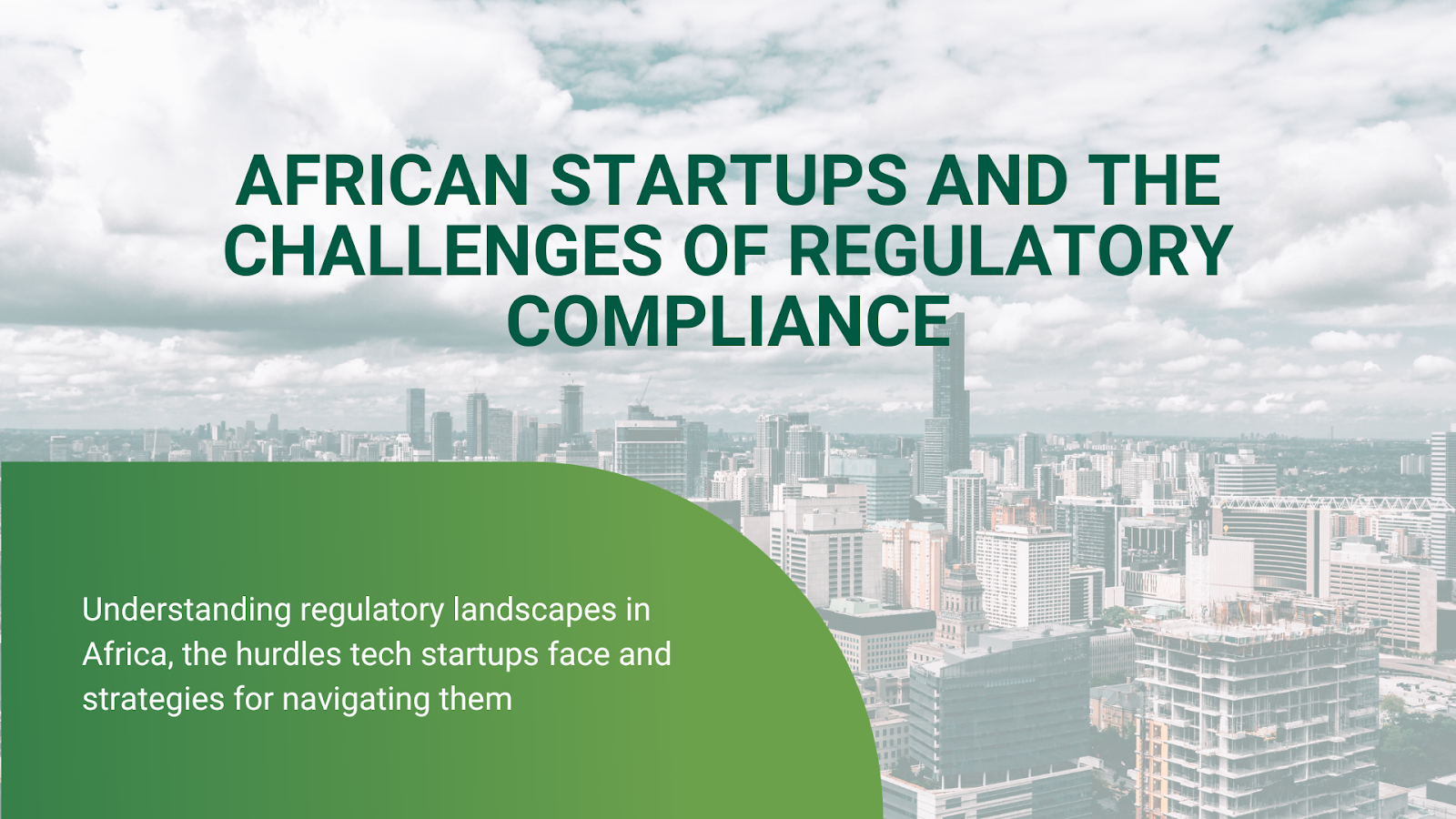
Africa’s startup ecosystem has experienced remarkable growth in recent years, with many countries on the continent emerging as hubs for innovation and entrepreneurship. However, navigating the complex regulatory landscape can be a significant challenge for startups. In this article, we’ll explore the regulatory frameworks that African startups need to be aware of, highlighting key challenges, opportunities, and best practices.
Overview of Regulatory Frameworks in Africa
Africa is home to 55 countries, each with its own unique regulatory environment. While some countries have made significant strides in creating startup-friendly regulations, others still lag behind. The regulatory frameworks that African startups need to navigate include:
- Company registration and incorporation: Startups need to register their businesses and obtain necessary licenses to operate. This process can be time-consuming and costly, but many countries are simplifying their registration processes.
- Taxation: Understanding tax laws and regulations is crucial for startups. Many African countries offer tax incentives for startups, but navigating these incentives can be complex.
- Employment laws: Startups need to comply with employment laws, including labor laws, employee benefits, and termination procedures.
- Intellectual property protection: Protecting intellectual property (IP) is essential for startups. African countries have varying levels of IP protection, and startups need to understand how to register and enforce their IP rights.
- Data protection and privacy: With the increasing importance of data, startups need to comply with data protection and privacy regulations. Many African countries are introducing data protection laws, and startups need to understand these regulations.
- Fintech regulations: Fintech startups need to navigate complex regulations around payments, banking, and financial services.
- Industry-specific regulations: Startups operating in industries like healthcare, education, and energy need to comply with industry-specific regulations.
Challenges Faced by African Startups
African startups face several challenges when navigating regulatory frameworks, including:
- Complexity and fragmentation: Regulatory frameworks can be complex and fragmented, making it difficult for startups to understand and comply with regulations.
- Limited resources: Startups often have limited resources, making it challenging to navigate complex regulatory environments.
- Corruption: Corruption can be a significant challenge for startups, particularly in countries with weak institutions.
- Limited access to funding: Startups often struggle to access funding, which can limit their ability to comply with regulations.
Opportunities for African Startups
Despite the challenges, there are many opportunities for African startups, including:
- Growing demand for tech solutions: Africa has a growing demand for tech solutions, particularly in areas like fintech, healthtech, and edtech.
- Increasing investment in startups: Investment in African startups is increasing, with many venture capital firms and angel investors active on the continent.
- Government support: Many African governments are introducing initiatives to support startups, including tax incentives, funding, and mentorship programs.
- Regional integration: Regional integration initiatives, such as the African Continental Free Trade Area (AfCFTA), are creating new opportunities for startups to access larger markets.
Best Practices for African Startups
To navigate the complex regulatory landscape, African startups can follow these best practices:
- Seek professional advice: Startups should seek professional advice from lawyers, accountants, and other experts to ensure compliance with regulations.
- Stay informed: Startups need to stay informed about regulatory changes and updates, particularly in their industry.
- Build relationships: Building relationships with regulators, industry associations, and other stakeholders can help startups navigate the regulatory environment.
- Be proactive: Startups should be proactive in complying with regulations, rather than waiting for regulators to take action.
Country-Specific Regulatory Frameworks
Some African countries have made significant strides in creating startup-friendly regulations. Here are a few examples:
- South Africa: South Africa has a well-developed startup ecosystem, with a range of initiatives to support startups, including tax incentives and funding programs.
- Kenya: Kenya is a hub for tech startups, with a range of initiatives to support innovation, including the Kenya National Innovation Agency.
- Nigeria: Nigeria has a growing startup ecosystem, with initiatives like the Nigerian Startup Act, which provides tax incentives and other benefits for startups.
- Rwanda: Rwanda has a business-friendly environment, with a range of initiatives to support startups, including the Rwanda Development Board.
Conclusion
Navigating regulatory frameworks is a significant challenge for African startups. However, by understanding the regulatory landscape, seeking professional advice, and staying informed, startups can comply with regulations and thrive. As the African startup ecosystem continues to grow, it’s essential for regulators, industry associations, and startups to work together to create a more supportive and enabling environment for innovation and entrepreneurship.
Recommendations for Policymakers
To support the growth of African startups, policymakers can:
- Simplify regulatory frameworks: Simplify regulatory frameworks to make it easier for startups to comply.
- Provide tax incentives: Provide tax incentives to support startups, particularly in industries like tech and innovation.
- Increase access to funding: Increase access to funding for startups, particularly through initiatives like venture capital funds and angel investor networks.
- Support industry-specific initiatives: Support industry-specific initiatives, such as fintech and healthtech, to drive innovation and growth.
By working together, African startups, regulators, and policymakers can create a more supportive and enabling environment for innovation and entrepreneurship, driving growth and development across the continent.
